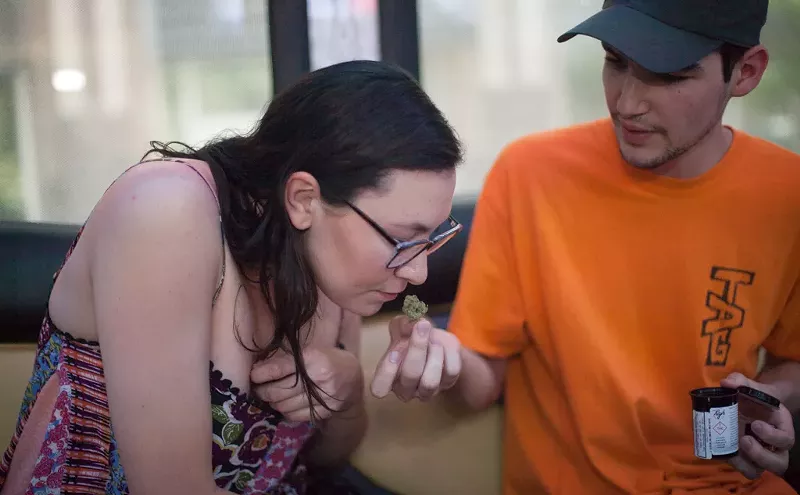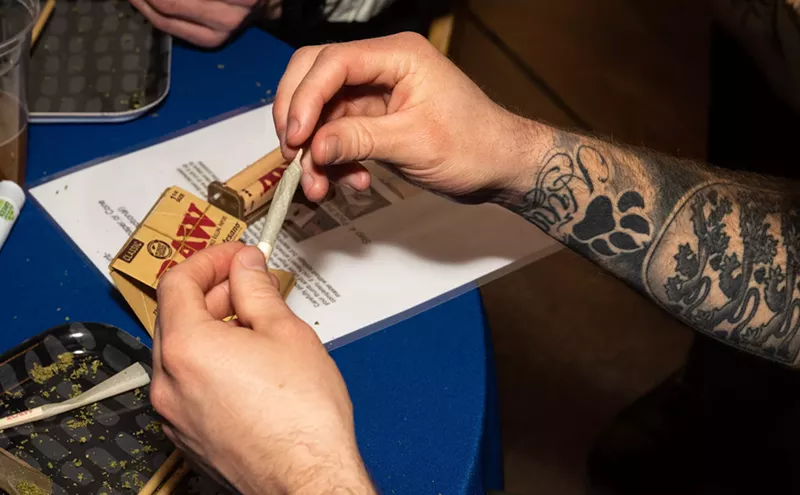The Last Prisoner Project, a nonprofit organization dedicated to pot-policy reform and the rehabilitation of nonviolent cannabis prisoners, gives Colorado a "C+" in its latest State of Cannabis Justice Report, which grades and ranks all fifty states for their cannabis policies. And states newer to legalization, such as California, Illinois, Minnesota, Missouri and Montana, all scored higher than Colorado for having more accessible pardon and resentencing programs.
Although the state doesn't technically have a resentencing program, Colorado received some praise for pot pardons and record-clearing efforts.
"While Colorado doesn't have a cannabis resentencing process, it has a robust pardon process that operates in a similar way," the report notes, adding that Colorado may have actually "effectuated more relief" than some states with higher grades. The Last Prisoner Project awarded scores based on "how broadly and effectively state policies offer relief for past cannabis offenses," however, and it says that Colorado could still use some improvement in that area.
Colorado's state record-clearing process scored poorly because past cannabis offenders must petition the courts and pay a $65 fee, with little oversight or timeline enforcement over any subsequent action, according to the Last Prisoner Project. The report also criticizes Colorado's narrow scope of offenses eligible for pardons or record-clearing, which is currently limited to offenses that are now legal under Colorado's marijuana laws, such as low-level possession.
States that have legalized recreational marijuana since 2018 are doing more, the report shows. All thirteen states that legalized adult-use marijuana over the past five years have included record-clearing policies in the legalization language. Colorado, which approved marijuana legalization in late 2012, didn't begin introducing such measures at the state level until 2020. Resentencing policies, a newer trend in legal states, reduce criminal court sentences related to cannabis but aren't full pardons, nor do they clear an individual's record.
"While resentencing policies have been slower to take hold, they are also growing in importance and have been included in more than half of the legalization bills since 2020. The increasing inclusion of these policies speaks to the importance
of providing relief for individuals harmed by the historically unjust War on Drugs," the Last Prisoner Project report adds.
Cannabis Justice Reform Efforts in Colorado
In 2020, the Colorado Legislature passed a law giving the governor the power to pardon previous possession convictions as long as the possession amount would be legal today. Governor Jared Polis issued 2,732 automatic pardons four months later, for convictions of one ounce or less of marijuana possession. In 2021, after the legislature raised Colorado's marijuana possession limit to two ounces, Polis pardoned another 1,351 convictions. A 2022 executive order from Polis ordered state agencies regulating professional licenses to observe a person's right to purchase, consume or grow marijuana. Lawmakers passed a law solidifying the order earlier this year, mandating that the Department of Regulatory Agencies and the Department of Revenue protect workers' licenses from revocation and out-of-state investigations related to legal marijuana activities. This wasn't included in the Last Prisoner Project report card, though, because it's not technically related to criminal justice.
Colorado voters recently decriminalized certain psychedelics and legalized medical psilocybin use, as well. The new laws and accompanying legislation have created a framework to clear past convictions for psychedelics possession and cultivation that are now deemed legal. While these moves don't directly impact victims of cannabis prohibition, they've received praise by criminal justice advocates. Still, the psychedelics clearing process is similar to that of clearing old cannabis convictions, which the Last Prisoner Project report just criticized.













